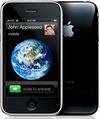McAfee (www.mcafee.com) has released the results of a survey that takes a look at the important parallels between personal and online security. When asked, 39% of respondents said they use technological devices to control their home security systems and 34% use smartphones to do so.
Alongside our appetite for such advanced technologies, so grows our need for protection of the digital devices that control them. Data from this survey suggests that our digital and physical lives are now fully intersected, according to McAfee.
Commissioned by The Futures Company, the joint survey of over 1,000 consumers shows that more than 51% of respondents reported having their personal security compromised through both physical and online breaches. When asked to define “personal security,” about 77% of survey participants consider it to intertwine both physical and online security, providing further insight that our digital and physical lives have merged into one.
Device proliferation has made digital security increasingly important — critical even — as our identities and personal devices are more susceptible to security breaches, says McAfee. While 31% of respondents of the survey said their smartphone presented the most potential for security risk and 49% stated that their computers are more vulnerable, 41% still fear losing smartphones most in a public setting.
Though this is the case, respondents didn’t seem too concerned with protecting them, and many are comfortable sharing their passwords with others. Two in three smartphone users (67%) and tablet users (65%) report that they protect their devices with a password, yet nearly half (49%) admitted to sharing their password with at least one other person, risking their personal security and all the data found on their device.
Since over 33% of people use their devices to control to their physical alarm systems, and more than half of them fail to secure their devices with basic protection like private passwords, it seems our need for awareness in security is great as the need for security itself, says McAfee. Among those who have experienced a home break-in, 59% reported a computer or mobile device among stolen items — leaving their personal data in the hands of thieves.
Reportedly, an estimated 1.6 million Americans have their smartphones stolen in 2012. This is especially important considering 30% of Android and Windows smartphone users and 50% of iPhone users don’t lock their mobile devices.
“In today’s always connected digital world, our entire lives are managed and are accessible across our devices,” says John Giamatteo, senior vice president and general manager of McAfee consumer business. “With the Internet of Things rapidly evolving, our partnership with ADT marks a critical advance in protecting consumers’ property and information in more ways than ever before.”
The Futures Company conducted a total of 1,228 online interviews in the U.S. among consumers ages 18-54 between Dec. 4-15, 2013. Interviews were distributed evenly by age and gender. The sample was comprised of 18% Hispanic and 18% African American respondents and achieved geographic distribution according to the US census.


![[NPL] Digital University’s New Courses](https://www.mactech.com/wp-content/themes/Extra/images/post-format-thumb-text.svg)

